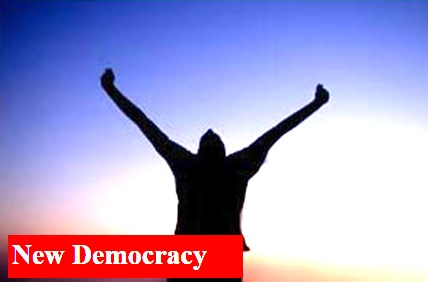
.
.
.
Modern democracy is very different from what existed a few centuries ago. The main reason for this is the fact that democracy today is much more inclusive than before, encompassing more social groups and minorities. It also has more rights guaranteed for citizens, such as civil rights, political rights, economic rights and social rights. Furthermore, there has been an increase in the level of people's political participation, increasing the responsibility of governments to their voters and allowing more voices to be heard in political decisions. Secret voting, universal suffrage and direct voting in plebiscites also contributed to the modernization of democracy.
The idea of free participation of all citizens in political decisions is directly associated with the two great values of democracy: equality and freedom. Today, in most modern societies, this concept covers all people without distinction, regardless of their gender, race, color or religious belief. This apparently elementary achievement is the result of changes and transformations that have occurred over more than 2 thousand years of the history of democracy. A dynamic government model that continues to evolve and that can and should be greatly improved.
In the modern democratic tradition, in which the election occupies the center of the decision-making process, direct participation by the population still occurs in an ineffective way. In general, the common citizen does not have a voice or space to listen. He does not participate in decision-making processes which, in practice, are defined by different intermediary groups between him (the citizen) and those he chose to represent him. In this model, society is called to vote only to choose its representatives, and not to participate in public management. In other words, the election does not resolve the entire issue of authorization that government officials receive from the population, nor does it ensure the representation that rightfully belongs to people.
Two terms that translate an idea that only works well when together, as there is no democracy without the participation of the people and, in authoritarian regimes, the majority of the people are prohibited from participating. Therefore, the principle for our participation is the defense of democracy, without it there is no participation of the people, and their rights, interests and needs are not considered.
Democracy is a political regime in which sovereignty must be exercised by the people. Citizens are the holders of power and deposit part of this power in State institutions, so that the State can coordinate the organization of society. Democracy has Greek origins – "demokracia" (demo = people and kracia = government) – and means government of the people. It emerged in Ancient Greece, more specifically in 510 BC, in the city-states of Athens.
There is not just one type of democratic political regime, democracy is basically divided into: Direct Democracy, in which political action is exercised by the citizen, Participatory Democracy, when the citizen participates with the State, and Representative Democracy, in which the citizen elects a representative to act in defense of their rights and interests. Therefore, the elected representative must identify with the interests and needs of those who elect him.
.
.
.




